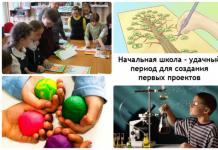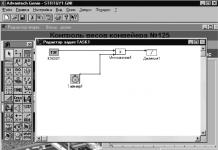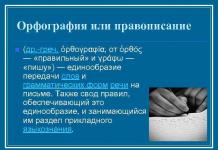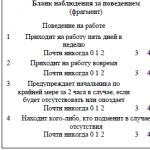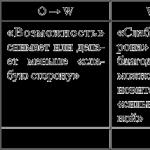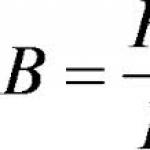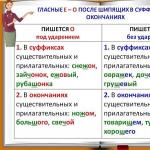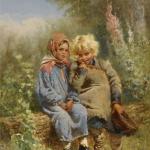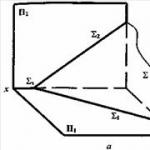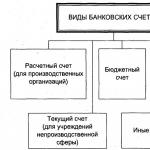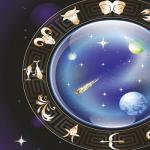List of possible topics for design and research work.
According to HISTORY
Introduction.
The list is just a starting point for choosing a research paper topic. You determine the topic of your research yourself, having it approved by your supervisor. You can either come with your own topic or choose one of the following. If you are interested in a particular area of history, you can seek help in choosing a topic. I would like to draw your attention to the section “History of Childhood in the USSR”, which we envision as a separate project combining several research works, which we would like to develop and continue. Within its framework, other topics that you propose yourself are also welcome.
In any case, remember the main thing: the topic should beinteresting exactly for you, and we will try to help you choose the right one.
Ancient world history
Ancient navigation according to the Odyssey (Umansky Leonid)
Ancient Greek container amphoras (stand design)
Spinning and weaving in the ancient world (stand design) – Lyuba Grigoryan
Roman military presence in Chersonese Tauride.
Construction inscriptions of the Bosporan kings as a historical source
Gladiators in ancient inscriptions. (Puchkov Evgeniy)
The Battle of Sardis as explained by Herodotus and Xenophon
Augean stables - myth and reality
The Athenian agora in the comedies of Aristophanes
Exchange of gifts in Homer's poems (Boris Korneev)
Vases on ancient Greek tombstones/in vase paintings
Animals on ancient tombstones / in vase paintings
Fruits of plants on antique tombstones / in vase paintings
Weapons in ancient vase painting
Cypriot kingdoms and the Ionian revolt against the Persians.
Cyprus in the classical period according to the works of Isocrates.
Reflection of everyday life in ancient Greek tombstones
Antique shipwrecks. (Gleb Sukachev)
Model of an ancient Greek vessel from a school museum: problems of attribution
Images of wreaths on the lists of priestly personnel from Olympia (Mitya Zharov)
History of the Middle Ages
Christian and Russian personal names in Novgorod birch bark documents.
Boris Godunov in Old Russian inscriptions.
Foreigners about money circulation in Moscow Rus'.
Fishing in Galich Mersky in the 16th – early 17th centuries. (with stand design).
Assault on Galich in 1450
Medieval “zoology” based on materials from bestiaries.
Old Russian princes are the owners of seals from Mogutovo.
The lifestyle of the inhabitants of the Mogutov estates.
Old Russian cuisine according to Domostroy
Sayings of the Seven Wise Men in the Old Russian “Bee”: the problem of selection
Order of the Hospitallers in Cyprus.
Richard the Lionheart in Cyprus
Griffins of Tsarskoe Selo: on the question of archaeological and numismatic sources of the image. (Volodina Anastasia)
The structure of inscriptions on ancient Russian spindle whorls (Maria Balakshina)
Tombstones of the Nikolo-Perervinsky Monastery (Ogorodnikov Sergey)
Cities of Dalmatia in the late Middle Ages: Split, Dubrovnik, Trogir.
Piracy in the Adriatic Sea in the 16th – 17th centuries. Uskok movement.
The role of women in the Crusades.
Formation of a new historical consciousness of the Renaissance (Analysis of the views of N. Machiavelli)
Patriotic War of 1812
Guerrilla actions of Denis Davydov (mapping)
Life of the Russian province in the rear of Napoleon’s “Great Army”.
Worldview of Denis Davydov.
Geographical and cultural characteristics of Russia in the memoirs of soldiers of the Grand Army of Napoleon I.
Inscriptions on French cannons (Galeev Oscar)
Story XIX V.
Implementation of zemstvo reform through the eyes of eyewitnesses.
Tsarskoye Selo Lyceum as a social and pedagogical project.
Animals in the service of the imperial family.
The economy of royal luxury: construction and maintenance of the Tsarskoye Selo palace complex of the 18th-19th centuries.
Unification of Italy (1848-1870). Risorgimento in faces.
History of the Cuban Revolution
The image of a revolutionary and partisan lifestyle in the works of Che Guevara
The mystery of Che Guevara's departure.
Cuban revolution in cinema
Che Guevara in peacetime.
Socialist Cuba in a unipolar world.
Modern history, anthropology and sociology
Conference “Vyshgorod”: topics of reports and geography of participants for 6 years (2005-2010)
History of project activities at the Intellectual school.
Personal names and nicknames of students of the Intellectual school.
The collapse of the USSR in the light of numismatics and bonistics.
Changes in the symbolism of domestic coins in 1991-1998.
The story of my family.
Inscriptions on the shovels of the Phanagorian archaeological expedition and the subculture of archaeologists
Russian poetic epitaph of the XX-early XXI century.
“Cyprus problem” in the Soviet media of the 1970s-1980s.
The image of the “Wild West” on both sides of the “Iron Curtain” (based on cinematographic materials)
The Great Patriotic War as reflected by Soviet and modern Russian cinema (comparative analysis).
Rome through the eyes of Italian film directors of the second half of the 20th century. (R. Rossellini, F. Fellini, M. Antonioni)
History of childhood in the USSR
The cult of pioneer heroes in the USSR.
Rituals of passage in the life of a Soviet child
Soviet ritual of admission to pioneers.
Elite children in the USSR.
Studying foreign languages in Soviet schools: features of the presentation and content of regional studies material.
America as perceived by Soviet children
Comics in the USSR
Interdisciplinary research
The folk calendar in the works of A. Melnikov (Pechersky) “In the Forests” and “On the Mountains.”
Mysteries of the phonetics of Old Russian inscriptions.
Stone-signpost in Russian folklore and literature.
Pits in the cultural layer of Phanagoria.
Design of the website of the Department of History
Design of the Internet page of the Mogutov archaeological expedition
Vasily Grigorovich-Barsky and P. S. Pallas: two travelers of the 18th century.
Knightly orders, royalty and the papacy in the era of the Crusades (using the example of the Kingdom of Cyprus).
Social projects
84. Waste paper collection system at the Intellectual school
Today's school graduate must have not only knowledge of basic subjects, but also practical skills and abilities. To achieve this result, current teachers use innovative teaching tools, one of which is learning activities. Already in the elementary grades, schoolchildren can be provided with interesting topics for carrying out research work in order to identify and develop their abilities in a form that is interesting to the student.
Scientific activities in primary school
Modern teaching methods have changed significantly in recent years. To identify the individual abilities of schoolchildren, today many teachers offer interesting topics for scientific learning activities already in elementary school.
This allows students to be motivated to acquire knowledge, and also contributes to their general and personal development.
The learning activity of schoolchildren is a specially organized individual or joint activity with other children. It can be creative, educational or playful. It is advisable to introduce its basics already in the lower grades.
At the same time, it becomes possible to solve the following pedagogical problems:
- To stimulate students to develop their creative activity.
- Acquiring the skills of exploratory learning as the most effective.
- Arouse interest in studying science.
- To develop the ability for independent learning and knowledge of the world around us.
- Development of communication skills and the ability to work in a team.
- Involving parents in the educational process.
This teaching method allows you to develop in a child independence, innovative thinking and the ability to objectively evaluate the results of his own business.
For its successful implementation, the teacher must create the necessary conditions, the main of which are I:
- definition of motivation;
- creating a creative atmosphere among students;
- psychologically comfortable environment for each participant;
- Research topics for elementary school should be selected taking into account age characteristics.
Important! This teaching method is more aimed at high school students. However, the foundation of knowledge and skills is laid at primary school age. Therefore, it should be implemented as early as possible.
It is extremely important, especially for younger students, to create a favorable environment for conducting classes. In this case, the psychological factor is of paramount importance. Proposed research works for children in 1st grade must correspond to their age characteristics.
This condition also applies to other age categories of participants. Project topics for schoolchildren in the first two years of study are chosen by the teacher. Starting from the third year of study, students can independently choose a problem that is interesting to them.

Project Selection
In developmental education, the process of developing research activity includes several stages, which are presented in the table.
| Stage | Year of study | Tasks | Methods |
| First | 1 | Teach the student how to correctly pose questions, the ability to observe, and make assumptions | Collective discussions, examination of objects, modeling of problem situations - in the process of conducting lessons. Excursions, educational games, modeling using available materials - outside of lessons |
| Second | 2 | Teach the student to determine direction, compare facts, analyze them, draw conclusions and be able to draw them up, develop independence, support initiative | Conducting debates, discussions, observations in accordance with the developed plan, presentations by children and teachers with stories - in the process of conducting lessons. Excursions, role-playing games, experiments, reports, individual modeling - outside of school hours |
| Third | 3–4 | Accumulation and use of experience. Solving problems independently. Awareness of reasoning and conclusions | Conducting research lessons, surveys, experimental activities and protecting the results |
Cognitive interest is most characteristic of early school age. It is on this psychological and physiological feature of this age category that the scientific learning activities of children are based and the topics of primary school research work are selected.
Starting from the fifth year of study, the establishment of social relationships with others and the desire to take a worthy place in the team come to the fore. At this age, schoolchildren begin to clearly demonstrate independence, and their areas of activity expand.
The teacher’s task at this stage is to support and guide the creative and educational aspirations of students. Research topics should be selected taking into account the interests of the student. For 5th grade, there are many areas for research that allow teenagers to show independence, their thinking abilities and expand the space of their actions.
Useful video: the art of writing a research paper
The scientific learning process in elementary school has its own specifics. It lies in the special role of the teacher, who must approach such an activity creatively. This will make the learning process interesting, and therefore more productive.
Important! A primary school teacher must be able to captivate children, show them the importance of their work and achieve the active participation of parents in this process. This is a great opportunity to get closer to children based on common interests and joint activities.
The participation of the children's parents is very useful. Knowing the character and hobbies of their child, they can help him choose a topic, select the necessary literature and other materials to carry out the necessary research.

Projects in junior school
For the youngest schoolchildren, general primary school research topics are offered, for example:
- How to protect my planet.
- Favorite toys.
- Disney cartoon characters.
- How to make a doll with your own hands.
- History of Matryoshka.
- How to decorate a Christmas tree.
- What nature can tell.
- Rare birds.
- Phone history.
- Bicycle in different countries.
- How a dog became a man's friend.
- Independent cats.
- How lessons are taught in other countries.
- Why is New Year celebrated in winter?
- The benefits and harms of tea.
This list can be continued endlessly. Kids are very inquisitive. They can be offered any topic that interests them. In the process of studying it, children will gradually learn to correctly plan and carry out scientific learning activities, which includes the following stages:
- choosing a topic;
- goal definition;
- carrying out research;
- preparation for defense;
- protection.
Questions for research activities in some subjects can be proposed for students of both primary and secondary schools.
The world
On this topic, the teacher can offer one of the following questions for students from the first to the fourth year of study:
- How to protect coniferous forests.
- How can you use packaging to your advantage?
- Plants of the Red Book.
- The mystery of the birth of stars.
- Why does the cat purr?
- Why do birds fly away?
- Is salt harmful or beneficial?
- What fish can live in the same aquarium?
- Why chips are bad for your health.
- Who are ants?
- What kind of honey is called linden honey?
- Correct hardening.
- What is lemonade made from?
- How are wild strawberries different from strawberries?
- The kindest dogs.
Any object or phenomenon of the surrounding world is suitable for research activities in this direction. At the same time, the child will learn the step-by-step implementation of his project, which will help when developing more complex problems in subsequent years.

Russian language
This subject is studied at school throughout the entire period of study. The teacher’s creative approach to teaching a serious subject will help make its study entertaining, starting from the first days. The following topics proposed for research work in the Russian language can be simplified or complicated, taking into account the individual abilities of the student:
Project topics for 1st grade:
- alphabet in names;
- how to show letters with gestures;
- funny alphabet;
- what is a dictionary for?
- history of riddles;
- how to learn .
Research topics for grade 2:
- why did they come up with the rules;
- speaking correctly is fashionable;
- how to put emphasis correctly;
- what are parts of speech used for?
- write a letter to a friend;
- We use words in a figurative sense.
For 3rd grade:
- how words are born;
- riddles about pronouns;
- what does a word consist of?
- cases and their names;
- noun – the main part of speech;
- how to construct a sentence from words.

Russian language projects
For 4th grade:
- how a word affects mood;
- history of proverbs;
- speaking surnames using examples of famous writers;
- the history of my name;
- what are punctuation marks used for?
- How commas affect the meaning of a phrase.
For 5th grade:
- verb importance;
- history of etiquette;
- words of foreign origin;
- why are polite words needed?
- how not to get a request refused using words;
- dialectisms using examples of works;
- influence of the Internet on the Russian language.
Some research questions on the Russian language are relevant for any age. On the recommendation of the teacher, you can select a topic for study that will be especially relevant among students.
Russian literature
The school curriculum provides for the study of literature from the 5th to the 11th year of study. The following project topics for interesting research projects on literature will provide the opportunity to delve deeper into the chosen issue in a fun way:
- Heroes of the epic “Ilya Muromets and the Nightingale the Robber” in cinematography.
- Mythological subjects in painting.
- Russian poets and love lyrics.
- How to perceive proverbs.
- Can you believe a fairy tale?
- Fables and fairy tales - what's the difference?
- Images of animals in fairy tales.
- Images of plants in the poems of A. Fet.
- Screen adaptation of works by Russian classics.
Important! In the age of computers and the Internet, it is very difficult to attract schoolchildren to read books. Research projects can be stimulating for children.
These projects, with a competent approach, can greatly interest schoolchildren and encourage them to read the works of the school curriculum, intended for study in the 5th grade.

Ilya Muromets and Nightingale the Robber
Story
Knowledge of history gives a person a more complete understanding of events occurring in the present time. When choosing a project topic for research work on history, the student must understand the full responsibility of the upcoming project. When performing it, the author must be extremely objective in his conclusions and not succumb to the desire to embellish historical facts.
The study of history as part of the school curriculum begins in the 5th year of secondary school. Children can be offered the following directions:
- Who opened the tomb of Tutankhamun.
- History of ships of the Ancient World.
- Ancient Egypt and art.
- History of costumes of ancient peoples.
- Myths and legends of Ancient Greece.
- The first Christian churches.
- First Olympic Games.
- Patriotic people of Greece.
- Spartan education.
When carrying out research work on history collectively, children have the opportunity to become closer during the collection of information and a general discussion of the obtained facts and learn to find solutions and draw conclusions during the discussion.

Ancient Egypt and art
English language
Today, the study of English as part of the school curriculum is provided from the second year of secondary school. But since different educational institutions begin to learn a foreign language at different times, and the level of training can vary significantly, it is difficult to classify project topics for research work in English by year.
It is advisable to discuss projects in groups. This allows children to overcome the barrier of oral communication in a foreign language, study more deeply the features of the English language and understand the translation of expressions that are difficult from this point of view.
Mathematics
When studying this subject at school, many schoolchildren are faced with the problem of memorizing the multiplication and division tables. Project topics for research papers in mathematics make the study of this material interesting. During the 3rd year of school, children are encouraged to explore problematic material in a fun way. The third grade of primary school is very important when studying mathematics, as it provides the basic knowledge for further study of this exact science.
Useful video: where to get topics for research and projects?
Municipal budgetary educational institution
Research paper on history
Topic: “Propaganda of a healthy lifestyle using the example of commander A.V. Suvorov"
Nikitina A., student of 8th grade;
Supervisor: Bayramgulova N.R., teacher
history and social studies MBOU
"Secondary school No. 2"
2.Chapter 1. Healthy lifestyle as one of the factors of success………………….5
1.1.Healthy lifestyle……………………………………………..5
1.2.Success. Success……………………………………………………………6
1.3. Great man……………………………………………………………...8
3.Chapter 2. Healthy lifestyle of a commander
A.V. Suvorov……………………………………………………………9
2.1.Physical development……………………………………………9
2.2. Moral education………………………………………...11
4. Conclusion…………………………………………………………….16
5. References…………………………………………………….18
6.Appendix………………………………………………………19
Introduction.
If it were up to me, I would do it
contagious is health, not disease.
Seneca. 4th century BC
The problem of human health in the context of universal human values is becoming increasingly important. There is a wide public response to the understanding that among the problems whose solution should not depend on socio-political conflicts, the central place is occupied by the problem of children's health, without which the country has no future (Nikitushkin V.G., Spirin V.K., 2002 ).
The problem of student health is becoming a priority direction for the development of the educational system of a modern school, the strategic goal of which is the education and development of a free, life-loving personality, enriched with scientific knowledge about nature and man, ready for constructive creative activity and moral behavior. The leading objectives of our school are: the development of intelligence, the formation of moral feelings, as well as caring for the health of children. All this is consistent with the main directions of the comprehensive school reform project (1998), in which the health of schoolchildren is one of the first places. The school in its activities is based on the need for creative development of the individual, promotes the formation and development of intellectual, psychophysical abilities, and social self-determination. All this is possible only if there is a health-creating environment in the educational institution, psychological comfort of the student and teacher, and systematically organized educational work to form a lifestyle.
In turn, a health-creating environment is ensured by the presence of conditions for preserving and strengthening the health of schoolchildren, on the one hand, and the purposeful formation of a culture of health for all participants in the educational process, on the other. The central place in the culture of health is occupied by value and motivational attitudes, as well as knowledge, skills, skills in maintaining and strengthening health, and organizing a healthy lifestyle (Pavlova I.V., 1999).
Due to the relevance of this issue, the topic of scientific and project activity we chose “Propaganda of a healthy lifestyle using the example of commander A.V. Suvorov". Unfortunately, we see that the health crisis of our young people is not only in their physical condition, but also in the decline of spiritual and moral ideals, principles, in their consumerist and selfish attitude towards life. And indifference, aimlessness of existence leads to an increase in crime. We see one of the ways out of this problem in promoting examples of a healthy lifestyle among young people or, in the words of the ancient Greek philosopher Seneca, “making health, not disease, contagious.” It’s no secret that we take examples of behavior from the media and television, which are not always positive...
Target design and research work “Healthy lifestyle in the lives of great people” - promoting a healthy lifestyle through examples of great people.
During the work we plan to perform the following tasks :
Disclosure of the basic concepts of “healthy lifestyle”, “great man”, “goal in life”.
Explore the life and work of commander A.V. Suvorov, from the point of view of his leading a healthy lifestyle.
When selecting and studying the literature, we encountered the problem that they do not contain a connection between a healthy lifestyle and the success of great people, i.e., a healthy lifestyle is not considered as one of the factors in achieving success. Based on this, a research hypothesis has been put forward: is a healthy lifestyle one of the conditions for individual success? The novelty of the project is that we conducted a study of the life of A.V. Suvorov from the point of view of physical and moral health.
In our work, we used methods of selection and work with scientific literature, conducted a survey of students, and analyzed information from computer sources.
Since a person’s health depends 70-80% on himself, on his choice, we hope that even if you and I do not become great people, their healthy lifestyle will become an example for us to follow. But Russia has always been famous for its heroes, heroes, commanders who possessed not only good health, but above all spiritual and moral principles: the ability to overcome obstacles, set and achieve noble goals, courage, patriotism in serving the Motherland.
Chapter 1. Healthy lifestyle
as one of the success factors
1.1.Healthy lifestyle
The key to happiness is
a healthy mind in a healthy body
Theodore Roosevelt
The ability to work, the harmonious development of personality, knowledge of the world around us, self-affirmation - all this is possible thanks to health.
Health– this is complete physical, mental and social health, and not
simply the absence of disease or physical defect.
Health provides the opportunity to lead a healthy lifestyle, i.e. a way of life, rationally organized, active, working, hardening, protecting from the adverse effects of the environment.
Thanks to a healthy lifestyle, we maintain good physical shape, which helps us fulfill our plans and solve our tasks, therefore, in order to achieve success, it is very important to improve our health. Factors affecting health:
genetic 15 – 20%
environmental 20 – 25%
medicine 8 – 10%
human lifestyle 50 – 55%
From these statistics it is clear that a person’s health mainly depends on himself. If we divide the signs of our daily behavior into two groups, then it will be possible to determine what kind of life we lead:
Signs of a healthy lifestyle
Comprehensive physical development ensures muscle strength, reliability of the cardiovascular system, and respiratory apparatus. But we are increasingly talking not only about physical, but also about mental health.
Mental health – belief in achieving the main goal. Every day, a person with positive attitudes makes decisions that lead to a goal.
A healthy lifestyle is a combination of physical and mental health. A healthy lifestyle helps us achieve high results in various areas of our lives. In the next paragraph we will look at how a healthy lifestyle helps you achieve success.
1.2. Success. Success
I am the captain of my soul
I am the master of my fate.
William Henley
According to the explanatory dictionary of S.I. Ozhegova, success is “luck in achieving a set goal, public recognition.”
As William Henley said, everyone is the “master of his own destiny” - a person’s success depends on himself. It consists of two components: a positive mindset and specific actions aimed at achieving the goal.
The importance of a positive mindset is very great. For example, take some beggar who, sitting in a wheelchair, asks for alms with a cup in his hand. He justifies himself by saying that after a serious illness he lost the ability to walk. But the rest of his body is healthy, and most importantly, his brain is healthy. But at the moment this person has chosen the path of fear. Since his brain does not make any decisions, and his body is constantly in passivity, inaction, then these, still healthy, parts of his body will soon completely atrophy.
But there was one person in Washington who suffered the same misfortune - he could not move independently. But he chose a completely different path. When he had to choose which path to follow - fear or faith, he chose the latter, and it led him to the presidency in the White House. This man's name was Roosevelt. He compensated for his physical disadvantage with a strong will and high intelligence. To this day, Roosevelt is remembered as the most active and active president of the United States.
There are many examples of people who grew up in poor families, achieved high places in society and accumulated enormous wealth. This is a typical example of how many people imagine success. Such success can be called material. But there is a more important success - self-improvement, accumulation of spiritual wealth, i.e. acquisition of valuable moral qualities, self-discipline, the ability to learn from the mistakes of one’s own and others, initiative.
From this we conclude that a healthy lifestyle is an individual system of human behavior, a way of life based on the principles of morality, rationally organized, active, working, hardening and at the same time protecting from the adverse effects of the environment. This is a lifestyle that can ensure the success of every person.
1.3. great person
A person with a clear goal will
to advance even in the most difficult
road, a man without any goal
will advance along the smoothest road.
There have been great people at all times and in all countries. Artists, scientists, athletes, and politicians were considered great. Now they also include pop stars. In our time, the concept of “great man” has been quite fully formed:
great person – a person who has achieved high results in any field of activity, who has become an example for everyone, who has led people, who has discovered new methods of studying and using any objects or phenomena, who has achieved recognition from others.
Russian history includes many people whose determination and healthy lifestyle are worthy of attention and imitation. Agree that it is impossible to simply achieve the title of “great man”! Otherwise, simple, ordinary people could achieve recognition from others. Only bright, strong-willed people with good physical health and a stable psyche can succeed in today's world.
A great person is a person who excels others in some area of life. These are people whose names have gone down in history, having made contributions to the development of science, politics or art. A great person is not just a talented person, but a person who combines genius and a great desire for work, thanks to which he has done a lot for those around him.
An invaluable happiness in our life is health. Its preservation largely depends on how we treat it. Lost health interferes with the implementation of planned plans and closes the way to the implementation of many wonderful plans and accomplishments. Human success is impossible without good health. The formula for success consists of many components: learning and using knowledge and skills, people’s experience, self-discipline, willpower, taking care of physical health. To succeed in life and win the recognition of people around you, to a certain extent, become a great person.
Chapter 2. Healthy lifestyle
commander A.V. Suvorov
2.1. Physical development
An example of the distinction of Russian valor, the genius of Russian military glory, in history was the name of commander Alexander Vasilyevich Suvorov. And he became an example in our work. Thanks to his Healthy Lifestyle and determination, he achieved unprecedented fame.
Alexander Suvorov was born on November 13, 1729 in the family of ensign Vasily Ivanovich Suvorov of the Preobrazhensky Regiment in Moscow. Nature endowed him with poor health, but the boy passionately wanted to serve, and therefore he began to strengthen his body, led the most ascetic lifestyle, trying in everything to imitate the beloved commanders of antiquity “Well, where can you be a military man! – his father laughed at him. You won’t even raise a gun!” His father's words upset Suvorov. And he decided to toughen up.
Sometimes the winter cold would come, everyone would dress in warm fur coats or not leave the house at all, and little Suvorov would throw on a light jacket and spend the whole day outside. Spring will come. As soon as the rivers open, no one even thinks about swimming, and Suvorov splashes into the cold water. He was no longer afraid of either heat or cold. The boy walked a lot and learned to ride well. On his father's estate, he waits for the pouring rain so that he can ride a horse under the cutting streams, when thunder rumbles and lightning flashes. Then, having become a commander, he will always be in the thick of battle, his thin sword will defeat enemy grenadiers in hand-to-hand combat, he will wear a summer linen jacket in the autumn cold and will change it to a warm one only when the army is given winter uniforms
Suvorov achieved his goal. Soon he entered military service in the Semenovsky regiment. Immersed in the soldier’s environment, Suvorov could not help but bear its influence. He became close to the army forever, the spirit of the Russian people took root in him. Suvorov described the service in all its painful details. After cleaning the gun, he said: “My wife is in proper shape.” It is amazing that Suvorov’s sharp critical mind remained silent at the sight of all the stupidities of army life. Karmically, he had to demolish everything and raise the military glory of Russia to unprecedented heights. His zealous attitude to service immediately distinguished Suvorov from other Semenovites. He began to be given responsible assignments. Even Queen Elizabeth noticed the dashing soldier. When he was on duty, she wanted to reward him with a ruble, but he replied that he was on duty and had no right to take money. Then the queen laid the money at the soldier’s feet: “Take it when you are relieved.”
At the age of 58 (1787), already being a field marshal, Suvorov remained just as demanding of himself and his soldiers. Everything that was instilled in him from childhood remained with him for the rest of his life. Accustomed to the constant hardships and deprivations of military service, he did not allow himself to relax in peaceful life. This fact is known. Empress Catherine the Great invited her favorite to balls. Staying overnight, he asked for straw to be laid down for him and went to bed, covering himself with a thin soldier's cloak.
At the age of 70, Suvorov led his army on a military campaign through the Alps. These places were terrible, the mountains were inaccessible. The first obstacle was Saint Gotthard - the top of the mountain. Russian soldiers tried to overcome this obstacle three times. And finally, it was possible. Having overcome Saint Gotthard, the Russians descended into the Reis gorge. A narrow rocky arch is thrown across the river at a height of thirty meters. The Devil's Bridge looms ominously over the abyss. The central part of the bridge was blown up by the French.
But Suvorov’s wars did not retreat from this obstacle. Using belts and ropes, they tied the logs together and built a bridge. We overcame this obstacle and entered the Mutten Valley. Here a fresh and strong army of General Massena awaited them. It seemed that victory should be on the enemy’s side: the Russian soldiers were too exhausted by the transition. And they were inferior in numbers to the French. Massena was already rejoicing at the victory, but his hopes were not justified. The Russians lured the enemy deep into the valley and defeated the French.
But new troops appeared before Suvorov’s army, the Russians were surrounded. The only way out was the snowy Panike ridge. Only by crossing it could one be saved. The ridge was considered impassable. The only path was icy. The abysses yawned below. Stones were torn down, people were torn down. The horses fell into the abyss with a wild neigh. In one night, Russian troops climbed the snowy ridge.
The descent from the top was just as painful. Many died - they crashed on the rocks, but even more were saved. Suvorov's army overcame an impregnable barrier. The cold and winds are left behind. The Alps have been conquered!
For the Alpine crossing, Alexander Vasilyevich Suvorov was awarded the rank of generalissimo of the Russian army. This campaign was the last in the life of the great commander. It is believed that Generalissimo Suvorov fought 60 battles and battles and won 60 victories. It would be more correct to count them as one more: 61 battles and 61 victories. The first battle - with one's own weakness and the victory won over it - should rightly be considered one of the most famous and amazing victories of the commander.
2.2. Moral education
Not only did Suvorov physically harden, he constantly studied. Suvorov's approach to learning can be likened to the "learning organization" approach. It was he who first said: “learning is light, and ignorance is darkness.” Suvorov used every opportunity available to train his people. The division passes by a monastery with high fortress walls - Suvorov immediately commands: “Storm the monastery.” The battle took place - a “debriefing” lasted two to three hours, with the most detailed coverage of all successful and unsuccessful moments. In the troops, in addition to the fact that each commander was responsible for training his troops, there was also an institute of veteran mentoring, especially supported by Suvorov, and specially introduced by him, the institute of excercismasters at the level of the rank and file, i.e. persons directly responsible for training personnel. Suvorov also encouraged independent military training of officers, setting an example for them in this, recommending them to read the most advanced sources of military thought.
Of course, such a total systematic approach to training personnel could not fail to produce results. High professional training added to Suvorov's soldiers confidence in their invincibility. This is how Suvorov’s miracles—the heroes—looked like “adults” in the eyes of others compared to “children.”
Suvorov does not hesitate to look like a reasoner when necessary - and the moral assessment of this or that person is always paramount for him. Speaking about his favorite hero of antiquity, Julius Caesar, he makes an important addition: “if I were Caesar, I would try to have all the noble pride of his soul, but would always shun his vices.” Without the consequences of the reservation, Suvorov’s attitude towards Caesar is inconceivable. Of course, Christian morality distinguished Suvorov from ancient heroes. But not every one of Suvorov’s contemporaries and descendants thinks so clearly about this issue. For Suvorov, this was an important recognition; he realized how weak and vulnerable even a great hero could become if he embarked on the path of vice.
Being himself a very religious man, he also developed a religious feeling among his subordinates. Not a single major battle began without a church service, which most often, due to Suvorov’s impetuosity, took place not before the battle, but along with the battle. He taught prayers to illiterate soldiers. Merciless towards his enemies on the battlefield, he was very merciful to them after their defeat: he simply let the captured Poles go home, and returned their swords to the captured French. During his life, Suvorov gave only one order for the death penalty, when a French spy was caught during a Swiss campaign. In his time, when it was customary to treat a soldier as an inanimate object, he proudly called himself a soldier, and said that a soldier is above all else for the fatherland.
Suvorov attached great importance to the development of the national dignity of the Russian person, which was based on his sense of human dignity. “Whoever loves his Fatherland,” he said, “sets the best example of love for humanity.” Suvorov had unlimited faith in the indestructible power of the Russian spirit. Here are a few statements from Suvorov that demonstrate this belief:
We are Russians, we will overcome everything.
No army in the world can resist the brave Russian grenadier.
Nature produced only one Russia. She has no rivals.
Try to move this stone. You can not? So the Russians cannot retreat.
Show in action that you are Russian!
The Russian is distinguished by faith, loyalty and reason.
Where a deer passes, a Russian soldier will also pass. Where a deer will not pass, a Russian soldier will still pass.
All Europe will move towards Russia in vain: it will find Thermopylae, Leonidas and its coffin there.
This faith increased his own strength and the strength of his soldiers tenfold, allowing him to instantly defeat enemy forces that were sometimes several times greater.
The creed of Suvorov as an educator is succinctly formulated in a letter to Alexander Karachay, the godson of the great commander and comrade in arms, the Hungarian general:
“My dear son, Alexander!
Due to the rank of a military man, delve diligently into the works of Vauban, Cougorn, Curass, Huebner; study partly theology, physics and morality. Carefully read Eugene, Tyuren, the notes of Julius Caesar, Frederick the Second, the first parts of Rolin's history and the dreams of Count de Sax; languages are useful for literature, exercises in horse riding, epee art and fencing.
Military virtues are: courage for a soldier, courage for an officer, courage for a general. The military leader, guided by order and structure, rules with the help of vigilance and foresight.
Be frank with friends, moderate in what is necessary and selfless in behavior. Flame with zeal for the service of your sovereign.
Love true glory; distinguish ambition from arrogance and pride.
Get used to forgiving the mistakes of others in advance and never forgive yourself for your mistakes.
Train your subordinates zealously and set an example for them.
Constantly practicing how to embrace everything with one glance will make you a great commander. Know how to use your location.
Be patient in the labors of war; don't be discouraged by failures. Know how to prevent false and doubtful circumstances; do not indulge in untimely passion.
Keep in your memory the names of great people and be guided by them in your campaigns and actions with prudence, never despise your enemy, no matter what he may be; try to find out his weapon and the way he acts and fights with it; examine his strengths and weaknesses.
Get used to tireless activity.
May God elevate you to the courageous deeds of the famous Karachay.”
These Suvorov precepts have long been studied in the cadet corps of the Russian Empire, and later in the Soviet Suvorov schools. They still remain the motto of the Russian army, the basis of the educational system of military educational institutions. It is hardly possible to express the essence of military valor with greater laconicism. Among other things, this letter shows how convincing Suvorov was in didactics and moral teaching. We see that, in addition to stoic willpower and the ability to invest all one’s strength in the main impulse. Suvorov had an analytical attitude towards life.
What is the secret of the great commander's victories? Of course, in brilliant talent, in knowledge that Suvorov did not hide from anyone. He even wrote a book, “The Science of Winning,” where he told about all his secrets. Even schoolchildren know some of these stages. But the most important thing is that Suvorov knew how to understand and respected his subordinates.
At that time, young guys from serfs, incompetent and illiterate, came to the army. The great military leader taught them in such a way that they became miracle heroes, eagles. He instilled in the soldiers a sense of love for the Fatherland, human dignity, courage, and resourcefulness. During the exercises, they were dripping with sweat, and Suvorov encouraged: “It’s hard in training, easy in marching.” On a campaign he is always with the army. He knew how to joke and cheer up in difficult times.
There were legends about various cases. In one battle, the soldiers faltered in front of a large enemy. “So, guys, lure, lure!” It became funny and embarrassing for those who ran away. And Suvorov already ordered them to stop, turn and - forward, with hostility, hurray!
The warriors loved their commander, followed him fearlessly and won. And all his life he remembered the names of many soldiers who had experienced both the joy and grief of more than one battle with him.
The pedagogical legacy of Alexander Vasilyevich Suvorov became the ideological basis of the Russian army and military educational institutions. Suvorov's legacy was studied by the commander's students - his younger comrades. Later, Suvorov remained the face of the Russian army, and to this day personifies the heroic traditions, as well as strategic intelligence. This is realized not only in Russia. Foreign authors traditionally downplay Suvorov’s military merits (the commander himself was accustomed to this during his lifetime, noting that “hired historians” in their distorting mirrors represent Russians as pygmies), but they also note that “his strategy remained a model for the Russian aria during World War II war and during the Cold War. Suvorov was not only the creator of the tactics of the future, but also a model imitated by his followers" (M. Lee Lanning. One Hundred Great Commanders. M., Veche, 1998). And it’s true that the image of Suvorov became the best educational example for our army.
The popularity of books about the commander, the movie “Suvorov” (released in 1940), Suvorov posters in the Red Army and brochures addressed to the commanders of the Red Army speaks for itself. It is no coincidence that Suvorov schools appeared, created on the model of the cadet corps of old Russia, but with a clear emphasis on Suvorov’s legacy (before the revolution, one of the cadet corps, Warsaw, bore the name of Suvorov). The history of the Suvorov schools is, of course, an important stage in the development of the commander’s ideas. Suvorov students - school age children - studied the biography of A.V. Suvorov, and Suvorov’s aphorisms - testaments to young soldiers - were firmly etched in the memory from the first steps in the schools. Behind every slice of school life we see the grandiose figure of Suvorov. A strict daily routine, physical exercise, hygiene - everything is supported by the authority of the great commander.
Alexander Vasilyevich Suvorov said about himself: “I must tell you that I shed blood in streams. I tremble, but I love my neighbor; In my life I have not made anyone unhappy, I have not signed a single death sentence, I have not crushed with my hand, not a single insect, I have been small, I have been great!”
Conclusion
Without physical and mental health There cannot be a person of longevity.I.I.Mechnikov
The documents of the World Health Organization say that health is not only the absence of disease and physical defects, but “a state of complete physical, spiritual and social well-being.” And, having studied the biography of A.V. Suvorov, we see he achieved all this. Firstly, physically: this naturally sick man, thanks to his responsible attitude to health and his goal, until the last days of his seventy-year life, fought on the field with his soldiers, without losing a single battle. Emperor Pavel I very correctly assessed Suvorov after crossing the Alps: “Having defeated the enemies of the Fatherland everywhere and throughout your life, you lacked one thing - to overcome nature itself, but you have now gained the upper hand over it too.” The commander was 70 years old. Secondly, having achieved his spiritual perfection, Suvorov became a great educator of his soldiers and their children and created an educational system for the next generation in the book “The Science of Victory.” An example of spirituality is his whole life, as he himself advised to take an example from the great men of antiquity, and go after him. To love God means to fight evil and untruth, as Suvorov did. To love your Fatherland, as Suvorov loved it, at any moment ready to give his life for its good. Imitate Suvorov in his love for people, his hatred of war, his ability to fight, his thirst for activity, his craving for creativity... His genius is visible in everything that Suvorov undertook: a talented writer, a brilliant poet, a brilliant commander participated in In seven wars, without knowing defeat, he fought 60 battles; the most brilliant pages of Russian weapons are associated with his name. And this is already a social success! He achieved such results precisely through purposeful activity. And every person, taking as an example the life and work of A.V. Suvorov can achieve success. Moreover, a survey of students and their analysis (Appendix No. 1) shows that 8th grade students at our school have a positive attitude towards a healthy lifestyle. This means that on our part, we need to promote positive examples of a healthy lifestyle. For this purpose, the results of our work can be used in history lessons and extracurricular activities. To do this, we have placed a quiz about the life of the commander (Appendix No. 2), interesting stories about the life of A.V. Suvorov “Proshka”, “Medal” (Appendix No. 3, 4).
This is just one example from history; in the future we would like to find and explore the lives and activities of those who became successful thanks to a healthy lifestyle.
From the educational system of A.V. Suvorov we took excerpts that we would recommend for everyone who wants to be healthy:
Daily workouts.
Constant self-control is the key to “commanding” happiness.
Keep your own destiny on a leash, defeating temptations.
The fight against vices, the first of which Suvorov considers “lack of knowledge” - lack of resourcefulness, laziness, reluctance to work on oneself.
For a healthy person - air, food, drink, for a sick person - air, drink.
Pray to God - he is our general.
One must hurry to do good.
Time is most precious.
Courageous deeds are truer than words.
Bibliography
Dashkova. Suvorov. Vorontsov.Speransky.Kankrin: Biogr.Narratives / Comp., total. Edited by N.F. Boldyreva; Afterword A.F. Rent. - 2nd ed. - Chelyabinsk: LTD>>, 1997
Murphy D. Control your destiny. Mn.: Potpourri, 2007.
Not for glory's sake...Biographical stories about great Russian people. 2nd ed., revised - M., 1998.
Education: Problems, search, solutions. Collection of scientific and methodological
works Issue No. 16. Khanty-Mansiysk, 2006
4. Oransky I.E. Be healthy! Sverdlovsk: medium - Ural book publishing house, 1988.
5. Pedagogy of Health. Collection of scientific and methodological works. Issue 4. Khanty - Mansiysk. 2006
6. Suvorov A.V. The science of winning. -Military published
7. Shibkova D.Sh. - The science of being healthy: A textbook for students.
Chelyabinsk: UOZH Ural.kn.iz-vo, 1997.
Application
Questionnaire for 8th grade
Target: determining among students the number of people who follow a healthy lifestyle and the reasons for non-compliance. Revealing the children's sense of purpose.
Questioning:
1. Daily routine – observed
Complied with partially not complied with
2. Motor activity – insufficient and limited
sufficient
optimal
3. Personal hygiene - observed
partially observed
not observed
4. Bad habits - drinking alcohol
smoking
drug addiction
none
5. Rational, balanced diet - yes
partially
6. Playing sports – constantly
regularly
7. Do you think a healthy lifestyle helps you achieve success in life?
8. Do you know examples of people who have achieved success thanks to a healthy lifestyle?
9. Having a goal in life - yes
partially
10. Write down what helps you achieve your goal.
Survey results
The survey was conducted among 8th grade students. A total of 36 people participated.The first question is adherence to the daily routineThe second question is the assessment of motor activity.

The third issue is personal hygiene.

The fourth question is the presence of bad habits.
Fifth question - assessing nutritional rationality
Question six – playing sports
The seventh question is whether a healthy lifestyle helps you achieve success in life. The eighth question is knowledge of examples of people who have achieved success thanks to a healthy lifestyle.
The eighth question is knowledge of examples of people who have achieved success thanks to a healthy lifestyle.
The ninth question is having a goal in life.
According to the survey, it turned out that the majority of respondents partially comply with the daily routine (86%). 8% of respondents do not follow a daily routine and only 6% adhere to it. Physical activity in adolescents leaves much to be desired - only 64% of respondents have optimal physical activity, 11% have insufficient, and 25% have sufficient. Question about maintaining personal hygiene - 97% percent comply with the rules of personal hygiene, and only 3% partially comply. The question about bad habits makes you think - at the age of 14 - 15 years, some already have bad habits (but it is not a fact that the rest wrote completely frankly). 86% of respondents do not have bad habits, 9% of respondents have a craving for alcohol and 6% tobacco addiction... Half of the respondents eat rationally, 42% rate their diet as partially rational, 8% eat irrationally.
As for playing sports, 44% always go in for sports, only 17% of respondents regularly, 31% rarely go in for sports, and 8% never! This is another problem of today's youth - the reluctance to play sports, and this, as a consequence, results in low physical activity. When asked whether a healthy lifestyle helps achieve success in life, 83% answered positively, 6% negatively, and 11% thought that a healthy lifestyle partially helps in achieving success in life. More than half of the respondents (58%) could not name examples of people who achieved success thanks to a healthy lifestyle, the rest named such. 75% of respondents have a main goal in life, 3% have no goal, and 22% were undecided.
We see that the answers of our respondents are optimistic, the main thing is that they understand the value of health, but on our part we need to promote positive examples of a healthy lifestyle, as this question caused difficulties for 42% of students.
New data on the life support system of the Cherkaskul population of the Issetye region
The results of paleocarpological analysis of ceramics from the Bronze Age Cherkaskul culture settlement of Olkhovka, located in the Iset valley, are introduced into scientific circulation. The discovery of imprints of wheat and barley seeds on the shards is practically the first direct evidence of the acquaintance of the Cherkaskul...
1999 / Matveev Alexander VasilievichThe population of the Yamnaya cultural-historical community in the light of odontological data
The article is devoted to the odontological characteristics of the population of the Yamnaya cultural and historical community. Based on odontological data, the composition of the Yamnaya population of Kalmykia, the Astrakhan region and Ukraine was analyzed. A conclusion has been made about the morphological heterogeneity of the pits and the leading role in...
2010 / Zubova Alisa VladimirovnaDon Regional Military Revolutionary Committee of United Democracy and the position of the Mensheviks (November 1917)
2004 / Shchukina T.V.External and internal Boeotian policy of the Theban polis during the Archidamic War of 431-421. BC.
2007 / Mozhaisky A. Yu.Amazons in the ancient tradition: etymological, territorial-geographical, religious aspects
2009 / Tyukhtina A.V.Alexander Volkov: first books and teachers
The article is devoted to one of the little research period of life of Tomsk Teachers" Training Institute graduate, famous children"s writer Alexander Melentjevich Volkov. This is the period of childhood and study at Ust"-Kamenogorsk City School in the years of 1899-1904. As the basis of the...
2004 / Galkina T.V.On the paleogeography of the Kazantsev time of the central parts of Central Siberia
The distribution of Middle Pleistocene Paleolithic sites in the south of Western (Altai Mountains), Middle (Ust-Izhul 1), Eastern (upper Angara basin) Siberia and Yakutia suggests the possibility of discovering sites of the same age in the central parts of Central Siberia....
2006 / Laukhin Stanislav Alekseevich, Sanko Alexander Fedorovich, Velichkevich F. Yu., Shilova Galina NikolaevnaLyausheva S.A. The evolution of religious beliefs of the Circassians: history and modernity (philosophical and cultural analysis). Rostov n/a, 2002.184 p.
2003 / Shevelev V.I.The problem of the formation of the English two-party system in historiography
The article reveals the main issues related to the evolution of ideas about the formation of a two-party system in England in the second half of the 17th and early 18th centuries. in foreign and domestic historiography. The author considers the main problem in historiography to be determining the essence of parliamentary...
2011 / Kiselev Alexander AlexandrovichNumber, religious and ethnic composition of the population of the Akkerman district (Belgorod-Dnestrovsky) in the second half of the 18th century.
2010 / Khaidarly D.I.Parties and organizations of the anti-Bolshevik camp
2000 / Mozhaeva L. A.Hermeneutical approach to teaching history at school
The article discusses the need and conditions for implementing the hermeneutic approach in teaching history, determined by modern trends that have emerged in the field of history education over the past 20 years. The article contains a comparative analysis of approaches to teaching history, showing...
2009 / Kudryashov Sergey VitalievichFrom Venelin's legacy
2006 / Dronov MikhailManagement system in conditions of crisis of state power in Russia (using the example of the Time of Troubles, 17th century)
The article presents an analysis of the management system of Moscow orders and cities during the Time of Troubles at the beginning of the 17th century. The reconstruction of 700 biographies of employees (clerks and clerks) made it possible to identify the main features of bureaucracy and show that the crisis of supreme power does not lead to the destruction of established institutions...
Decorations from the burials of the Kinyama burial grounds
Subject to analysis being costume complexes from Kinyamino I, II (XIIIth early XIVth cc.) burial grounds, reconstructing plait decorations from ...
2008 / Semenova Valentina IvanovnaHistory Research Project Topics
- profile
Russian history
Vikings and Slavs: a history of relationships.
Real and mythological images of ancient Russian princes.
Heroes of Russian epics and their real prototypes.
Princely congresses of the 12th–13th centuries. and their real meaning.
Historical reality of “The Tale of Igor’s Host”, “Prayers of Daniil the Zatochnik”, “Teachings of Vladimir Monomakh” and other works of ancient Russian literature.
Political system of medieval republics (Novgorod, Pskov).
History of Christianization of East Slavic territories.
The history of the canonization of princes Boris and Gleb.
Russian medieval monastery as a landowner and intellectual center.
International relations of Kievan Rus.
“Vlesova Book”: a history of falsification.
Problems of “feudalism” in the works of Russian historians.
Church reform of 1666: causes and results.
History of the Siberian Old Believers.
History of Old Believer book printing.
History of the Old Believer desert habitation.
History of Old Believer entrepreneurship (the Morozov, Ryabushinsky dynasties, etc.).
Old Believer self-immolations: myths and reality.
Images of monarchs of the 18th century (Peter I, Catherine II, Paul I) in Russian journalism of the 19th–20th centuries, school textbooks.
Political symbolism: royal weddings, coronation celebrations, inaugurations.
Russian social thought and the search for national identity (based on the example of the works of M.M. Shcherbatov, Slavophiles and Westerners). N.I. Novikov and Russian Freemasonry.
Russian illegal and banned publications of the 19th century
Decembrist G.S. Batenkov and his library.
Utopias of place in Russian folk culture (the legend of Belovodye, the city of Kitezh, “earthly paradise”).
My family tree.
Political portrait of members of the “Chosen Rada” (Sylvester, A. Adashev, etc.).
Metropolitan Macarius and Ivan IV: a) the formation of the political doctrine of Ivan IV; b) characteristics of relationships.
Ivan Peresvetov in Russian political thought: is he typical?
Psychological and historical portrait of Ivan the Terrible (you can also take other figures: A. Adashev, Sylvester, Metropolitan Macarius, Boris Godunov, etc.).
Troubles: “the main characters” (characteristics of False Dmitry I and his entourage, False Dmitry II, resistance leaders: M.V. Skopin-Shuisky, P. Lyapunov, K. Minin, D. Pozharsky).
Reasons for the schism of the Russian Church in the 17th century.
Worldview of the Old Believers.
Personality and activities of Patriarch Nikon.
Leaders of the Old Believers of the 17th century: Avvakum, John Neronov, Deacon Fedor - personality, activities, worldview.
Agriculture and settlement of Russians in the Tomsk district of the 17th century.
Colonization of Siberia in the XVII-XVIII centuries.
Raising children in the family of Alexei Mikhailovich.
The place of the Armory Chamber in the artistic culture of Rus'.
Personal contribution of Peter I to the reforms of the first quarter of the 18th century.
The Demidov family of nobles in the second half of the 18th century.
Figures from the reign of Catherine II: A.R. Vorontsov, A.A. Bezborodko, A.G. Potemkin, A.V. Suvorov, N.A. Rumyantsev, F.F. Ushakov, N.I. Novikov.
Russia through the eyes of M.M. Shcherbatov and A.N. Radishchev.
Social life of a provincial city using the example of Siberian cities.
Labor movement in Russia in the 17th-19th centuries.
Public organizations and self-government bodies during periods of revolutionary crises.
Finding ways of communication.
History of technology in Siberia.
Regional control centers.
Evolution of volost government
Alexander I as a diplomat.
Regional governing bodies in the formation of Russia's eastern policy.
Siberia and Central Asia in historical retrospective.
Russia and Central Asian countries.
Romanovs in everyday life.
Raising children in the royal family.
Daily life of the royal family in the era of Alexander I (according to the memoirs and diaries of contemporaries)
Palace and park ensembles of the Romanovs.
Alexander I and Adam Czartoryski: the history of “friendship” according to diaries and letters.
Russia through the eyes of foreigners (XVI-XIX centuries)
European literature and Russian society in the second quarter of the 19th century.
Europe through the eyes of P.A. Tolstoy.
The idea of royal power in Rus' and its ritual design at the end of the 15th - first half of the 16th centuries.
Diplomacy and foreign policy concept of the Russian state in the XV-XVII centuries.
Russian policy in Transcaucasia in the first third of the 19th century. (based on materials from the Caucasian Archaeographic Expedition)
Women's education in Russia.
Charters of Russian universities in the 19th century
"Turgenev's girl" or a Russian nobleman in search of a female ideal.
Russian female noblewoman in the 18th century. (based on memoirs, diaries and letters)
Hunting in the life of the Russian nobility (XVIII-early XX centuries)
“Order” and “disorder” in the ideas of the townsman and state power in the 17th century.
Rus' and Lithuania through the eyes of descendants and contemporaries.
The Cadets Party in 1905-1907.
Program and tactics of the Socialist Revolutionary Party.
The Black Hundred movement at the beginning of the 20th century.
Russo-Japanese War 1904-1905
Russian army in the First World War.
Memoirs of S.Yu. Witte as a source for studying the political history of Russia at the beginning of the 20th century.
Life of the family of Nikolai P.
Sources on the history of Russia in the cycle of novels by A.I. Solzhenitsen “The Red Wheel”.
Russia and the monarchy in the works of the great thinker of the Russian diaspora I.A. Ilyin (1883-1954).
Mathematical methods in history.
Features of Russian culture.
The personality of P.A. Stolypin in the novel by A.I. Solzhenitsen “August the Fourteenth.”
"People's Monarchy" by Ivan Solonevich.
Russian monarchy at the beginning of the 20th century.
Social class structure of Russia at the beginning of the 20th century.
Russian Orthodox Church at the beginning of the 20th century.
Kuril Islands in Russian-Japanese relations in the 18th-20th centuries.
Features of the parliamentary system of Russia at the beginning of the 20th century.
Eurasian concept of the Russian Empire.
Civil society in Russia at the beginning of the 20th century.
“Vekhi” as a turn in the worldview of the Russian intelligentsia.
Higher school in Russia at the end of the 19th - beginning of the 20th centuries.
Memoirs of V.V. Shulgin as a source on the history of Russia.
Zemstvo self-government in Russia.
"Union of Michael the Archangel."
Main features of Russian civilization.
Russian mentality. The main features of the Russian national character.
National policy of P.A. Stolypin.
P.A. Stolypin.
Features of Russian imperial statehood.
The ruling class in Russia at the beginning of the 20th century.
Orthodox features in Russian spirituality.
Emperor Alexander II. Liberator or hangman?
Emperor Nicholas I as a statesman.
Peasant reform of 1861 in the assessments of contemporaries.
The concept of historical alternative in historiographic practice.
“Russia and the West” N.Ya. Danilevsky. Types and degrees of social development.
Russian intelligentsia and revolution. (Vekhi interpretation).
Populist revolutionism as a type.
The relationship between the concepts of “serfdom” and “feudalism” in Russian literature.
The real meaning of the autocracy of the Russian state.
Historical chronology and historical metrology. Number, counting and measurement as a cultural concept. Counting systems and ideas about time in various cultural traditions. Computing and measuring devices, instruments for measuring weight, length, volume, area in the Russian historical tradition. Government policy regarding weights and measures.
The phenomenon of play in culture. Gambling and commercial games in the everyday life of various classes of Russian society. "Russian roulette". Gambling. The image of the game in Russian literature and journalism.
Historical geography. The role of the natural environment in the socio-economic, political and cultural life of Russian society.
Life and customs of Russian society. Categories of labor, idleness and leisure in the worldview and way of life of various classes of Russian society.
Leisure and holiday realities of a provincial town.
Russian feast and national cooking.
Tax system in Moscow and Imperial Russia (and methods of tax evasion)
Secret police in Russia in the 19th and early 20th centuries.
A.P. Ermolov: military leader, diplomat, politician
Crimean War (1853-56)
History of the Black Sea Fleet.
The image of a Russian official in journalism and literature
I.A. Bunin: a look at Russian history, the Russian people, the intelligentsia and the revolution.
City self-government in Russia and Siberia.
Diplomatic etiquette: from Ivan III to Putin.
Russia is the birthplace of terrorism. Narodnaya Volya and the “hunt for the Tsar.”
“The Club of the People’s War”: the partisan movement in Russia in 1812.
Cooperation with Napoleon in the French-occupied territories of Russia.
Activities of the English Muscovy Company in Russia (1554-1649): prospects and limits of British colonialism in relation to Muscovite Rus'.
“Gold Rush” in Siberia (30-40s of the 19th century)
Folklore (magic and everyday tales, legends, tales, proverbs and sayings) as a historical source.


